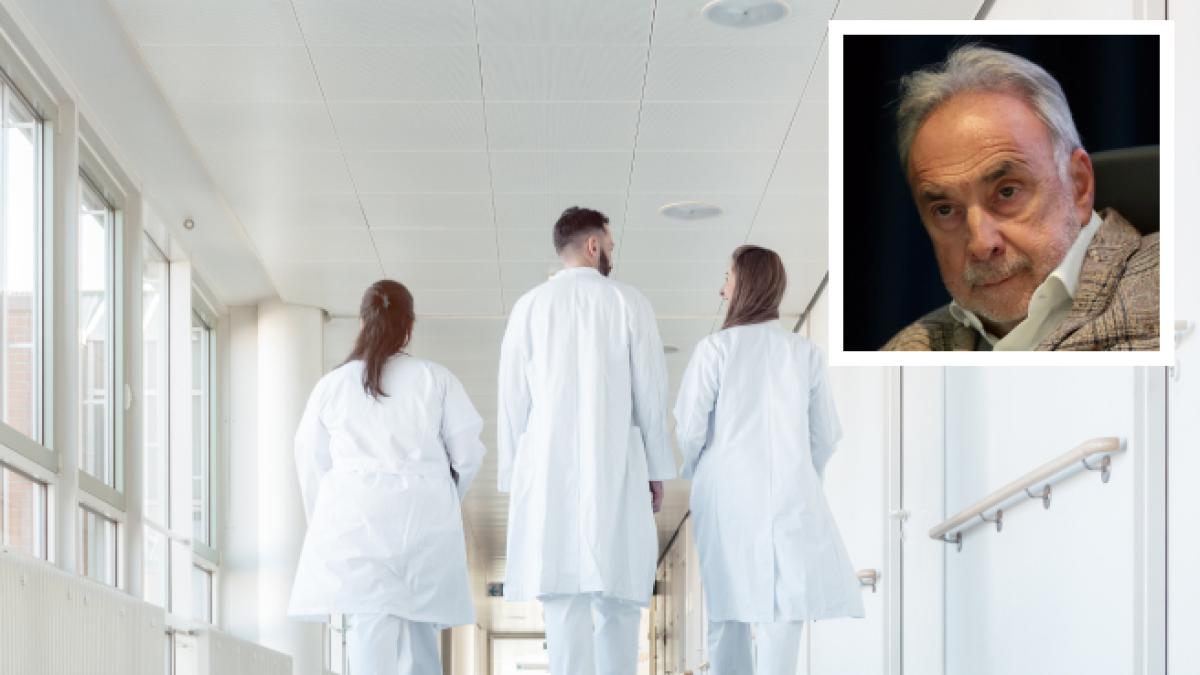by Luigi Ripamonti
The director of the Mario Negri Institute: what is worrying is the lack of specialists, especially in emergency medicine, microbiology and clinical pathology. And then all hospitals should become research centers
How alarming should the flight of doctors abroad be? Will we be left without anyone to care for us?
«The problem must be considered as a whole – comments Professor Giuseppe Remuzzi, director of the Mario Negri Institute in Milan -. According to the most recent data, what is worrying is not the overall shortage of doctors but of specialists, especially in emergency medicine, microbiology and clinical pathology. Instead, the number of medical graduates compared to the population per 100 thousand inhabitants has one of the highest values in Europe: 18.7 per 100 thousand inhabitants, compared to 9.9 in France and 12 in Germany. And the increase in the number of doctors in the last four years is also unparalleled as a trend in other European countries. In the last decade we have a correspondence between the number of new graduates (around 136 thousand) and places scheduled for access to post-graduate training courses (around 146 thousand). The number of active doctors is four per thousand inhabitants, in line with the European average. The shortage of specialists in some areas is real. And it is due to the lack of attractiveness of some specialization schools and to foreign mobility, in fact. After all, if you earn much more in other countries, it is difficult to retain the specialists we need.”
Is it therefore just a question of inadequate remuneration?
“Not only. Also and above all a question of motivation and organization. It is essential to work immediately with the trainees, who are doctors in all respects, and ensure that they participate in competitions for fixed-term contracts, with the possibility of them becoming permanent after the specialist diploma: there are amendments in the approved Pnrr to the Chamber who allow it immediately. Working together with postgraduates, among other things, also entails a training advantage for their tutors, because the enthusiasm of the young people and their propensity for digital activities makes them a precious resource for their older colleagues. Naturally, an adequate division of the number of grants between the various medical specialties must be made to avoid there continuing to be an excess of specialists where they are not needed and shortages in others. Another fundamental thing is to make all hospitals become research hubs. Research is a strong attraction factor, even for doctors who come from abroad. In a department with these characteristics, 35 candidates recently applied for a position. It’s a cultural theme, you have to be able to create a team.”
However, the problem of finding the necessary resources remains.
«Resources are found if waste is reduced, such as that from useless tests or from the use of drugs that are more expensive than others without significant advantages. The problem is that, if we do not really understand that the prosperity of a country depends on the well-being of its citizens, we will never be able to save the National Health Service, which is not something like any other but it depends on the growth of everything else. We need to move from just saying it to implementing concrete solutions. Thus also finding the money to pay doctors and nurses more, especially those who have a more difficult life, for example in emergency departments, another sector in difficulty.”
We have arrived at the sore point of the Emergency Room.
«This is a problem that can be resolved with a profound reform of local medicine, which in itself would drastically reduce improper access to the emergency room and would therefore guarantee a better quality of life for those who work there, doctors and nurses, with positive consequences for patients who really need it.”
How is it possible to resolve the issue of local medicine?
«We must have the courage to close small hospitals and replace them with community homes, or whatever they want to call them, and with local hospitals. There are many examples of the former that work very well. I can mention two, recently visited, in Ferrara and Mantua. Regarding the latter, the general director told me “Here you can find everything except resuscitation”. As for nearby hospitals, they can very well be entrusted by nurses who, if adequately trained and motivated, are perfectly capable of managing them, assisted by telemedicine that is truly telemedicine and not just theoretical.”
We have left general practitioners behind.
«Family doctors remain the backbone of our health service. The duration of their training courses should be increased from three to four years and the qualification should be made equal to that of other specialty schools. Furthermore, the planning and management of the training network, which should be university-based, must be increased. In any case, problems cannot be solved by tackling them from time to time when emergencies arrive. It takes strategic thoughts and actions.”
May 5, 2024 (modified May 5, 2024 | 07:13)
© ALL RIGHTS RESERVED
